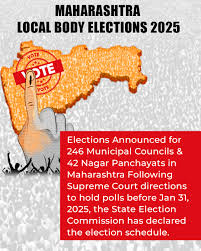

One of the most important parts of a contract is the offer. The other is the acceptance of the offer. How the offer is made and accepted, as well as the times at which they happen, are also very important in the real world of business and economics. Let’s look at this timeline for conversation and find out what it means to back out of a deal.
https://www.youtube.com/watch?v=299q9mUAm0o
Section 3 in The India Contract Act 1882
communication, acceptance, and revocation of proposals —Any act or omission of the party proposing, accepting, or revoking, by which he intends to communicate such proposal, acceptance, or revocation, or which has the effect of communicating it, is considered to be the communication of proposals, the acceptance of proposals, and the revocation of proposals and acceptances, respectively. This is the case regardless of whether the proposal is accepted or rejected. Any act or omission of the party proposing, accepting, or revoking, by which he intends to communicate such proposal, acceptance, or revocation, or which has the effect of communicating it, is considered to be the communication of proposals, the acceptance of proposals, and the revocation of proposals and acceptances, respectively. This is the case regardless of whether the proposal is accepted or rejected.
Section 5
It is possible to revoked a proposal at any time before it has been fully communicated to the person who made it, but not after. It’s possible to take back an acceptance at any time before it’s fully communicated to the receiver, but not afterward.
The Picture
- Through a letter sent through the mail, A wants to sell his house to B.
- B says yes to the offer in a letter sent through the mail.
- A can back out of his offer at any time before or after B posts his message of acceptance, but not afterward.
- B can back out of the deal at any time before or at the time that the letter telling A about it gets to A, but not afterward.
Communication of offer and acceptance
However, we have already seen that an offer can’t be taken back once it has been made and accepted. Then the offer is legally binding, and there are formal ties between the two parties.
When will the conversation be over? Making sure that everyone understands the deal and that it is communicated well is important to avoid misunderstandings.
This is not a problem if the people are talking in person. The conversation takes place in real time, and both the offer and response will be sent at the same time, so there is no room for confusion.
Communication of offer
According to Section 4 of the Indian Contract Act of 1872, the communication of the offer is considered to be complete when it comes to the awareness of the individual to whom it has been made. Therefore, the communication of the offer is considered to be finished when the offeree (in the case of a particular offer) or any member of the public (in the event of a broad offer) becomes aware of the offer.
When two individuals are communicating with one another, whether it be in person or over the phone, for example, the communication will be considered finished as soon as the offer is made. For instance, if Mr. William informs Mr. Peter that he will repair his roof for five thousand rupees, the conversation is considered to be finished as soon as the words being said are released.
Continue with the same example, shall we? The letter that Mr. William sends to Mr. Peter offers to repair his roof for the sum of five thousand rupees. When he sends the letter, it is on July 8th. Today, July 10th, the letter is delivered to Peter. On the 10th of July, it is reported that the communication will be finished.
Communication of acceptance
A Mode of Acceptance That
In this particular instance of acceptance communication, there are two aspects to take into consideration: first, the form of acceptance, and second, the time of the acceptance. To begin, let us discuss the manner in which acceptance is made. These are the two ways that acceptance can be accomplished:
Communication of Acceptance by the Use of an Act: Communicating with words, whether verbally or in writing, would fall under this category. Therefore, this will encompass communication through many means such as telegraphs, letters, e-mails, and telephone conversations.
Communication of Acceptance by conduct: An further method by which the offeree might communicate his acceptance of the offer is through the actions or behaviors that he demonstrates. Assume, for example, that when you board a bus, you are agreeing to pay the fee for the bus by your behavior.
Date and time of acceptance
The acceptance communication is comprised of two distinct elements. Let’s have a look at it.
As against the Offeror: The communication of the acceptance is considered to be finished for the proposer when he places such acceptance in the course of transmission. This is in contrast to the situation facing the offeror. Consequently, he will no longer be able to rescind such agreement after this point, and his communication will be finished at that point. As an illustration, let’s say that A writes a letter to respond to B’s offer. On the 10th of July, he sends the letter, and on the 14th of July, it is delivered to B. From the perspective of B, who is the proposer, the message of acceptance is finished on the 10th of July itself.
As against the Acceptor: The communication in the case of the acceptor is considered to be finished when the proposer becomes aware of the acceptance. Therefore, in the case that was presented before, A’s communication will be finished on July 14th, when B finds out that the acceptance was received.
Revocation of Offer
Section 5 of the Indian Contract Act outlines the procedures that must be followed in order to revoke an offer. There is a provision that states the offer may be withdrawn at any moment prior to the completion of the transmission of acceptance against the proposer or offeror. This means that it is no longer possible to withdraw the offer once the acceptance has been notified to the person who made the offer.
First, let us look at the same example that we did before. It is on July 10th that A decides to accept the offer and sends the letter. The letter is delivered to B on July 14th. However, the acceptance was notified to B (the proposer) on the 10th of July even before it was received. Therefore, the offer may only be revoked prior to the 10th of July at the latest.
Revocation of acceptance
According to Section 5, acceptance can also be withdrawn until the notification of the acceptance is finished against the acceptor. This provision is included in the section. After such a date, there is no possibility of the acceptance being revoked.
In continuation with the preceding illustration, the transmission of the acceptance against A (the acceptor) is finished on the 14th of July. Therefore, A has the ability to cancel his or her acceptance up until that date, but not beyond that date. As a result, A has the ability to make the decision to withdraw the acceptance between the 10th and 14th of July.





